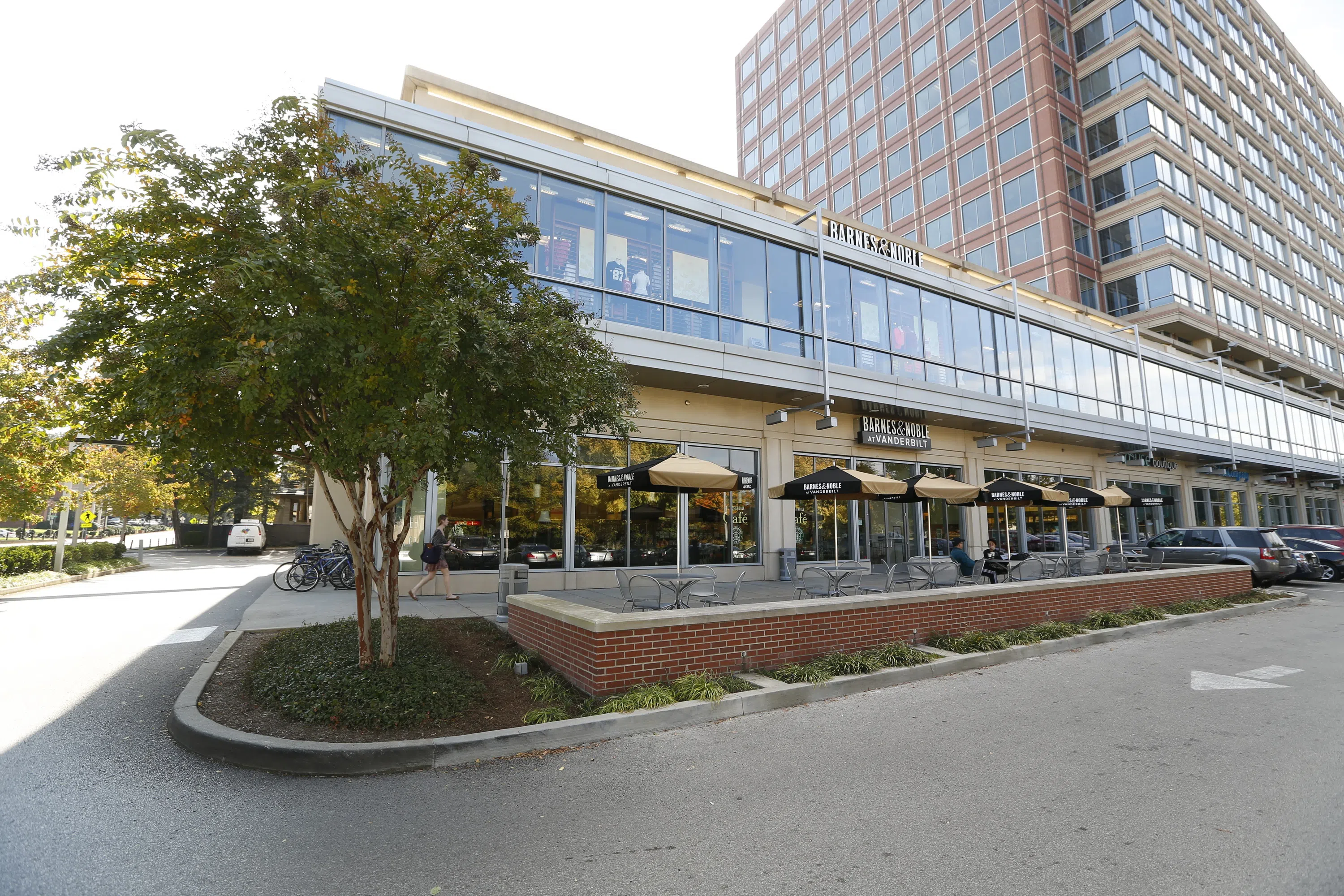Engineering and Science Building
Vanderbilt is known for producing intellectual leaders, entrepreneurs, and innovators. The Science and Engineering Building is a state-of-the-art space enhancing their work. Connected to the School of Engineering’s Olin Hall, the Science and Engineering Building includes a cleanroom and advanced imaging facilities for work in nanotechnology, as well as other research labs, classroom space, and a café.
Media Gallery
School of Engineering
⭐ School of Engineering
At Vanderbilt, engineering is a collaborative process connecting students and faculty together to methodically solve the world’s most complex problems. Everyone is always learning and always questioning.
Engineering education begins with fundamental concepts of the physical laws that govern the universe as we know it. Once a major of study is selected, the learning follows the direction of the specialty while maintaining a balanced and flexible liberal arts core. At Vanderbilt, we believe engineering cannot exist in a vacuum; engineering makes use of the arts and the sciences for practical ends.
Professors and students work in modern, highly functional laboratory, classroom and maker spaces designed to generate ideation, conversation and innovation. They collaborate on projects that span the spectrum of engineering from robotics and tissue engineering to biomedical optics and sustainability. Opportunities abound to conduct original research both in engineering and across the Vanderbilt campus.
Vanderbilt engineering graduates are valued for their expertise, intellectual independence, communication skills and leadership ability. Professional demand for graduates with this background is intense. Graduates are actively recruited, not only for engineering careers, but also for careers as diverse as project management, finance, consulting, medicine and law.
Engineering education begins with fundamental concepts of the physical laws that govern the universe as we know it. Once a major of study is selected, the learning follows the direction of the specialty while maintaining a balanced and flexible liberal arts core. At Vanderbilt, we believe engineering cannot exist in a vacuum; engineering makes use of the arts and the sciences for practical ends.
Professors and students work in modern, highly functional laboratory, classroom and maker spaces designed to generate ideation, conversation and innovation. They collaborate on projects that span the spectrum of engineering from robotics and tissue engineering to biomedical optics and sustainability. Opportunities abound to conduct original research both in engineering and across the Vanderbilt campus.
Vanderbilt engineering graduates are valued for their expertise, intellectual independence, communication skills and leadership ability. Professional demand for graduates with this background is intense. Graduates are actively recruited, not only for engineering careers, but also for careers as diverse as project management, finance, consulting, medicine and law.
School of Engineering
At Vanderbilt, engineering is a collaborative process connecting students and faculty together to methodically solve the world’s most complex problems. Everyone is always learning and always questioning.
Engineering education begins with fundamental concepts of the physical laws that govern the universe as we know it. Once a major of study is selected, the learning follows the direction of the specialty while maintaining a balanced and flexible liberal arts core. At Vanderbilt, we believe engineering cannot exist in a vacuum; engineering makes use of the arts and the sciences for practical ends.
Professors and students work in modern, highly functional laboratory, classroom and maker spaces designed to generate ideation, conversation and innovation. They collaborate on projects that span the spectrum of engineering from robotics and tissue engineering to biomedical optics and sustainability. Opportunities abound to conduct original research both in engineering and across the Vanderbilt campus.
Vanderbilt engineering graduates are valued for their expertise, intellectual independence, communication skills and leadership ability. Professional demand for graduates with this background is intense. Graduates are actively recruited, not only for engineering careers, but also for careers as diverse as project management, finance, consulting, medicine and law.
Engineering education begins with fundamental concepts of the physical laws that govern the universe as we know it. Once a major of study is selected, the learning follows the direction of the specialty while maintaining a balanced and flexible liberal arts core. At Vanderbilt, we believe engineering cannot exist in a vacuum; engineering makes use of the arts and the sciences for practical ends.
Professors and students work in modern, highly functional laboratory, classroom and maker spaces designed to generate ideation, conversation and innovation. They collaborate on projects that span the spectrum of engineering from robotics and tissue engineering to biomedical optics and sustainability. Opportunities abound to conduct original research both in engineering and across the Vanderbilt campus.
Vanderbilt engineering graduates are valued for their expertise, intellectual independence, communication skills and leadership ability. Professional demand for graduates with this background is intense. Graduates are actively recruited, not only for engineering careers, but also for careers as diverse as project management, finance, consulting, medicine and law.
